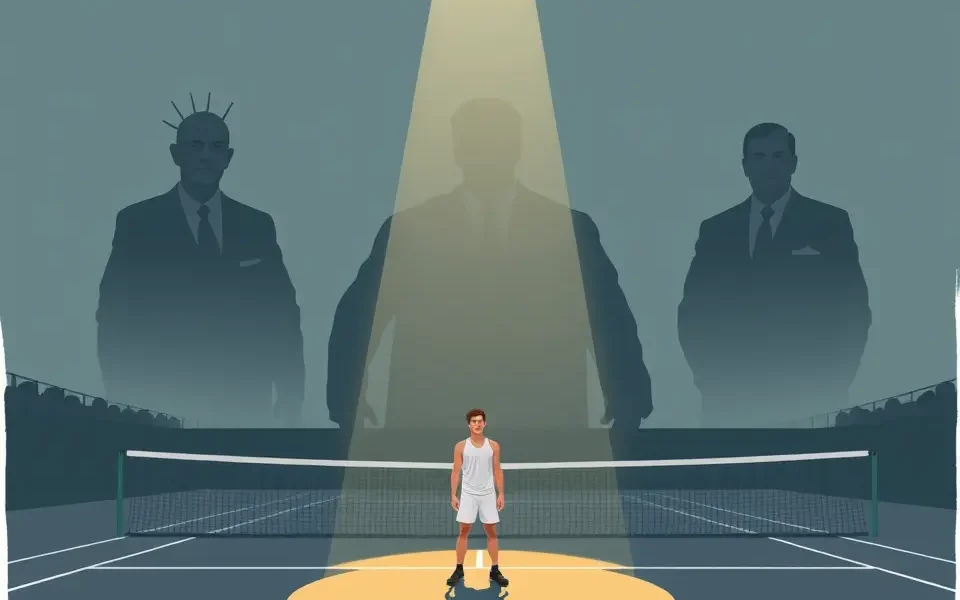The Professional Tennis Players Association (PTPA), co-founded by Novak Djokovic, has publicly defended Jannik Sinner, asserting that the Italian tennis star has been “treated unfairly.” This declaration comes as the PTPA pursues a lawsuit against the ATP, WTA, ITF, and ITIA, accusing these governing bodies of anti-competitive practices and disregard for player welfare.
PTPA Launches Lawsuit Against Tennis Governing Bodies
The PTPA, an independent players’ union, filed a lawsuit against the major entities governing professional tennis, alleging monopolistic control and exploitation of players. The lawsuit, filed in New York, accuses the ATP, WTA, ITF, and ITIA of anti-competitive practices, jeopardizing player health and safety, and suppressing earnings. Ahmad Nassar, executive director of the PTPA, stated that “Tennis is broken,” highlighting an unfair system that exploits players’ talent and disregards their well-being.
Key Grievances in the Lawsuit
The PTPA’s lawsuit outlines several critical issues:
- Unsustainable Schedules: Players are subjected to grueling schedules, often playing in extreme heat and late-night matches.
- Substandard Equipment: The quality of tennis balls, chosen by tournaments, contributes to chronic injuries.
- Privacy Violations: Players’ privacy rights are allegedly abused through random drug tests.
- Financial Exploitation: The lawsuit claims that the Grand Slam tournaments generate substantial revenue but allocate a disproportionately small percentage to the players.
Governing Bodies Respond
The ATP and WTA have responded to the lawsuit, with the ATP accusing the PTPA of choosing “division and distraction” and asserting that the case is “entirely without merit.” The WTA defended its record of growing women’s tennis, describing the lawsuit as “baseless”.
PTPA Defends Jannik Sinner Amid Doping Controversy
Amidst the legal battle, the PTPA has also voiced its support for Jannik Sinner, particularly concerning the handling of his doping case.
Sinner’s Doping Scandal: A Timeline
- Positive Tests: In March 2024, Jannik Sinner tested positive for clostebol, an anabolic steroid, during the Indian Wells Masters tournament.
- Explanation: Sinner claimed accidental contamination through an over-the-counter spray used by his physiotherapist.
- ITIA Investigation: The ITIA accepted Sinner’s explanation, stating he bore no fault.
- Controversy: The decision to clear Sinner sparked backlash, with some critics alleging preferential treatment.
- WADA Appeal: The World Anti-Doping Agency (WADA) appealed the ITIA’s decision, seeking a ban for Sinner.
- Settlement: Sinner and WADA reached a settlement, imposing a retroactive three-month ban.
PTPA’s Stance: Unfair Treatment
Ahmad Nassar, the PTPA’s executive director, has been vocal about what he perceives as deficiencies in the anti-doping system. He argues that the system often causes excessive anxiety for athletes and that Sinner was placed in an “unfair situation.” The PTPA contends that the anti-doping system should focus on catching genuine dopers and ensure fair trials for all athletes, regardless of their financial standing.
Reactions to Sinner’s Doping Ban
Sinner’s three-month doping ban has drawn mixed reactions. Some tennis professionals have criticized the deal, suggesting it was too lenient. Daniil Medvedev expressed hope that everyone could defend themselves like Sinner, while Tim Henman found the timing of the ban “too convenient.” Nick Kyrgios stated that “Fairness in tennis does not exist,” questioning the integrity of the sport.
Jannik Sinner’s Controversies Beyond Doping
Besides the doping scandal, Jannik Sinner has faced other controversies:
- Presidential Snub: Sinner sparked controversy by declining an invitation to meet the Italian president after his Australian Open triumph, choosing rest instead.
- Staff Changes: Following the doping controversy, Sinner parted ways with his fitness coach and physiotherapist.
Broader Implications and the Future of Tennis
The PTPA’s lawsuit and its defense of Jannik Sinner highlight deep-seated issues within professional tennis. The lawsuit aims to address structural problems, promote player welfare, and ensure fair treatment. Whether the PTPA’s legal action will lead to significant changes remains to be seen, but it has undoubtedly opened up a schism between the sport’s leaders and many of its athletes.








No Comment! Be the first one.